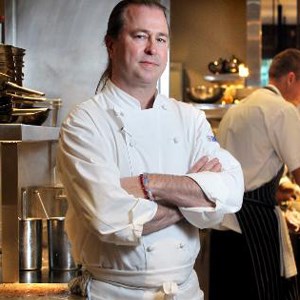The introduction of legislation to phase-out commercial net fishing in Victoria’s Port Phillip Bay will impact heavily on Melbourne’s fine dining scene says chef Neil Perry of the Rockpool Group.
The Fisheries Amendment Bill 2015 was introduced in late October, 2015 as part of the Daniel Andrews Labor Government’s plan to boost recreational fishing in the Port Phillip Bay area.
The legislation will see commercial net fishing phased out over the next seven years and according to the state government, will also increase catch rates and the size of fish for those who wish to fish recreationally, positioning the area as prime recreational fishing destination.
There are currently 43 commercial fishing license holders in the area, many of whom supply to some of the State’s top restaurants including Neil Perry’s Rockpool Bar and Grill, Guy Grossi’s Grossi Florentino and Anthony Lui’s Flower Drum.
To compensate, Labor has developed a $27 million package in consultation with the fishers and their representative body, Seafood Industry Victoria. The State’s restaurants however will need to source alternative seafood suppliers (most likely form Adelaide) for particular species of fish including King George Whiting, Garfish, Dilver Trevally and Red Mullet, hampering their ability to serve seafood on the day that it has been caught.
Speaking with the Herald Sun, Neil Perry of the Rockpool Group said that between 70 to 90 percent of the seafood served in his Melbourne-based restaurants comes from Port Phillip Bay.
“Beautiful fresh sustainable fish – that is fundamentally apart of the culture of Melbourne is going to disappear,” Neil Perry of Rockpool told the Herald Sun.
“Fish is about a fresh product, the further anything travels in the seafood world the less fine it is.”
Perry, together with a number of other high profile chefs have urged the state government to review the ban. Lord Mayor Robert Doyle is in support of a review of the legislation, stating that the integrity of the marine environment in the area can be upheld alongside the operation of sustainable commercial fisheries.
Doyle’s sentiment is backed by findings in a report from Independent Fisheries research consultant, Kirsten Abernethy.
“Both commercial and recreational fisheries can coexist,” Abernethy report reads.
“They have done so for decades, and there is no valid scientific or ethical reason why this can’t continue.”
A spokesperson for the minister for agriculture, Jaala Pulford said that there was a comprehensive consultation process around the development of the legislation, including the assessment of menus from Melbourne’s high end restaurants.
“Very few Melbourne restaurants appear to have Port Phillip Bay caught fish on the menu,” the spokesperson told the Herald Sun.
“In the case of Grossi Florentino and Rockpool, the only seafood on today’s menus that could be caught from Port Phillip Bay is calamari — which could be sourced from a number of waters around Victoria — and baby snapper, which will continue to be caught commercially at the same level in Port Phillip Bay.”
As it currently stands, the Fisheries Amendment Bill 2015 will:
- Specify a clear pathway for phasing out nets from Port Phillip Bay by 2022, including the closure of Corio Bay to netting by 1 April, 2018
- Specify how compensation payments will be determined for the 43 licence holders who will be affected by this decision
- Provide for a limited non-net commercial fishery of up to 8 licence holders to operate in Port Phillip Bay from 1 April, 2022
- Provide for the first licences to be surrendered from 1 April, 2016

